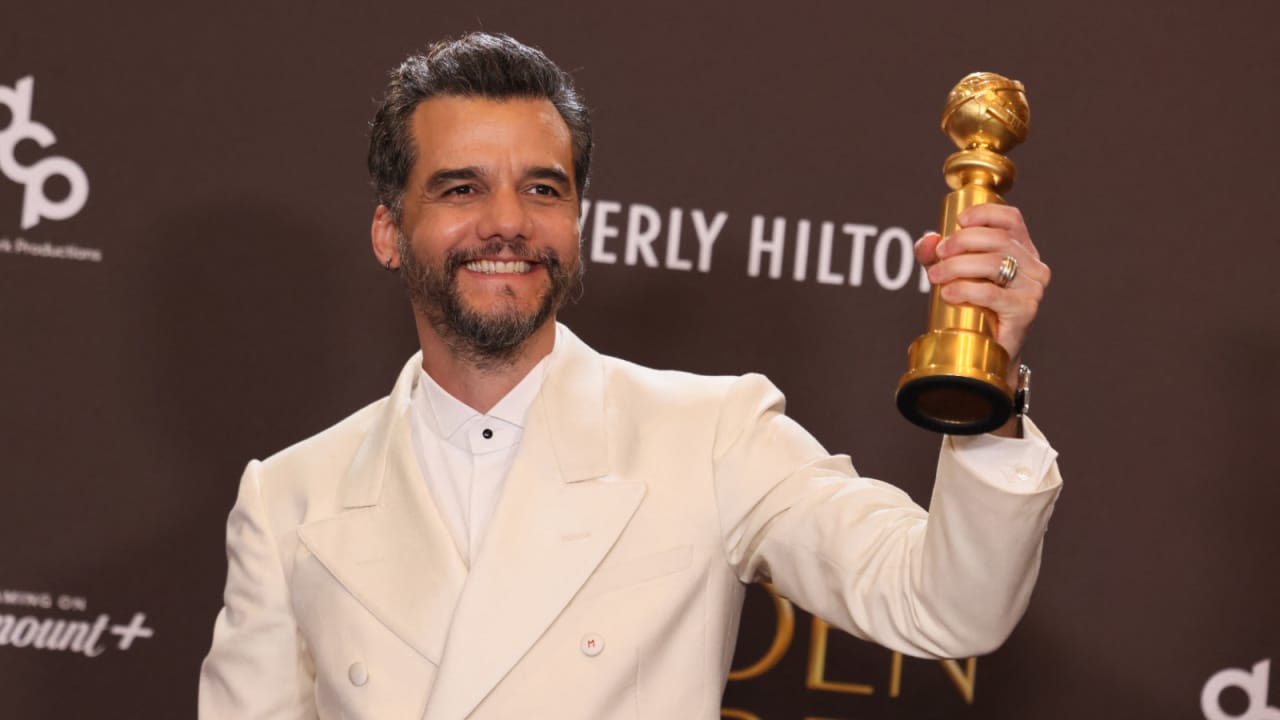Brazilian Gymnast Rebeca Andrade Wins Olympic Gold— Here’s Her Incredible Story of Resilience
Brazilian artistic gymnast Rebeca Andrade, 25, is having her moment. The Guarulhos-born competitor just became the most decorated Brazilian Olympian in history after winning four medals in Paris (she has a total of six). Andrade took home one of those medals— the gold— on Monday for the women’s floor exercise final, beating her “toughest” competition Simone Biles, 27, (USA) who landed silver. Was there an ounce of saltiness from Andrade’s competitors, though? Definitely not. May we present the podium bow that shook the world:
Andrade, Biles, and bronze medal-winner Jordan Chiles, 23, (USA) made up the first all-Black podium in Olympics history. Biles spoke about Andrade’s incredible talent in a press conference, describing, “I have so much respect for her. She’s such a good competitor… She keeps me on my toes. It’s an honor to get to compete with her.” Later, Biles (sort of) joked, “I don’t want to compete with Rebeca anymore! I’m tired. She’s very close to me— I’ve never had an athlete so close.”
Biles said that Andrade “brought out the best athlete in [her]” during the Olympics, and that she has “never been so stressed before.” Maybe that’s why Biles and Chiles decided to bow to the Brazilian gymnast at the podium— she’s just that good.
About the bow, Biles said that it was originally Chiles’ idea, to which Biles responded: “Absolutely.” Biles— the most decorated gymnast in Olympic history— recalled, “So we’re like, ‘Are we gonna do it now? And then that’s why we did it,'” calling Andrade a “queen.”
Similarly, Chiles said they just wanted to give Andrade “her flowers” for her beautiful gymnastics career. “Not only has [Andrade] given Simone her flowers,” Chiles said, “But a lot of us in the United States our flowers as well, so giving it back is what makes it so beautiful.” She also called Andrade a “legend.”
While watching Andrade’s gold-winning floor sequence, you can see what she means. We’re… floored:
Ahead, find everything to know about Brazilian gymnast Rebeca Andrade, her childhood growing up in a favela, and how she rose to international acclaim.
Andrade grew up in a favela with seven siblings, walking two hours to train every day
Andrade was born in the city of Guarulhos in São Paulo, Brazil, growing up in a favela with seven siblings and single mother who worked as a maid.
The gymnast first realized her abilities by trapezing off her bunk bed at home. “While my mother balanced the house, work and children… I balanced myself in the furniture of the house,” she once described. “There was a bunk bed that I would go up, go down and hang.” All this at… nine months old. “I think I was already training and I didn’t even know,” Andrade stated.
Still, the gymnast said that she discovered her passion by chance. Her aunt Cida heard that there were a few spots in a city-funded project sponsoring child gymnastics, and took the very-energetic four-year-old Andrade to try it out. “I fell in love with gymnastics on the first day,” the gymnast recalled. “My family saw how much I liked to go, my mother saw that it was what I wanted and, even despite the huge distance from home to the gym, even with all the difficulties, they always did everything to support me.”
Still— Andrade and her family had to work tirelessly to get her to the training program. The 25-year-old explained that her mother could not always afford her bus fare, so her brothers Emerson, Elisama and Roger walked her two hours to the gym. Even more, Andrade told Vogue that her brothers would often place her on their bicycle so she would not have to walk.
“When I arrived on a very steep climb, I told [my brother] that I wanted to get off the bike because I knew it was heavy,” she explained. “He wouldn’t let me and said that I couldn’t get tired in training.” She remembers how her family always helped her with a “smile” and “affection” every step of the way.
Andrade calls her mother her “heroine” who fought tirelessly so “nothing was missing” in their family, while her older brothers “helped take care of everything.” Still, she remembers often moving homes, and sleeping “messy,” sometimes in cramped spaces. Even then, she says her childhood was “fun,” and clearly full of love.
Later, as Andrade showed incredible promise, she competed at the state, national, and international level. At 10 years old, Andrade’s family made the ultimate sacrifice and sent her to live with her coach so she could be close to her training gym, eventually moving to Rio de Janeiro. Just a few years later, the gymnast became a Brazilian champion, winning gold at the 2020 Tokyo Olympics in vault.
Astonishingly, Andrade has recovered from three separate ACL injuries during her career. While the injuries— which occurred in 2015, 2017 and 2019— all proved to be major setbacks needing surgery, the gymnast bounced back every time. “I’ve overcome a lot of things, and each time I overcame something tough, I was more determined to come back,” she once said.
About her outstanding performance at this year’s Olympics, Andrade wrote on Instagram, “Whoever protects me does not sleep! Eternal gratitude… Our team, my family, all the fans and more, [I thank everyone] who contributed to my success.”
Andrade, who also led her team to their historic first bronze medal at this year’s Olympics, wrote in a separate post: “I have no words to describe what it was like to live this moment with this team. The pride I feel for having given everything of myself for them, for you and for me. Just gotta give thanks.”
Plus, it turns out she’s a very relatable queen, too— and we love her for it:




